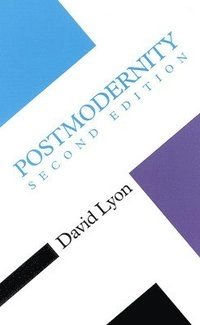"...written with enthusiasm and a commitment to clarity...Lyon shows that the employment of a sociological imagination can add new and unexpected depth to cultural analyses."
Keith Tester, University of Portsmouth
* What does 'postmodernity' mean? How does it help us grasp the meaning of 'modernity'? Is it better than similar terms such as 'high', 'late', 'reflexive' or 'radicalized' modernity?
* What are the enduring social consequences of the widespread diffusion of communication and information technologies and of consumer-oriented lifestyles?
* Does being postmodern mean that 'anything goes', or are values and beliefs still socially significant?
In the second edition of this highly successful text, postmodernity is seen as the social condition of the twenty-first century, in which some of the most familiar features of the modern world are not only called into question, but actually undermined by novel trends. The key carriers of the postmodern - new technologies and consumerism - emerged in thoroughly modern contexts, but so profoundly affect everyday social life that modernity itself is changing shape. Postmodernity is a way of describing a new society in-the-making without supposing that modernity has been entirely left behind. While some dub these changes as 'high' or 'late' modern, this book argues that 'postmodernity' best captures today's transformations of modernity.
Postmodernity is explored as a theoretical concept in order to uncover and illuminate central social trends of the present. Its historical roots and cultural dimensions are examined, as are the ideas of its leading theorists. In this updated and expanded edition, greater attention is paid to processes of globalization as well as to the postmodern view of cyberspace, cyborgs, and the body as a site of moral conflict.
Åtkomstkoder och digitalt tilläggsmaterial garanteras inte med begagnade böcker





















